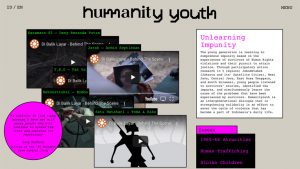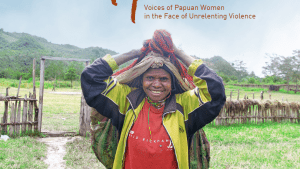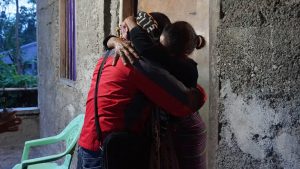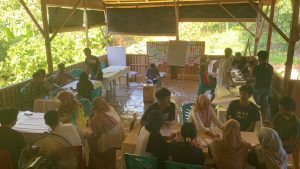Indonesia
Indonesia continues to struggle with a legacy of mass human rights violations. The country has long been involved in state-sponsored community violence, compounded by rights violations by security forces, violent extremist groups, and big business ventures competing for natural resources. In the context of impunity, Indonesia struggles to resolve the root causes of conflict, making it vulnerable to social divisions and violence. Despite this, it has increasingly backed away from commitments to accounting for mass violations, and continues to respond to unrest with torture and violence.
Twenty-three years post-Reformasi, Indonesia has made headway in improving accountability, inserting human rights protections in its constitution, creating judicial mechanisms to try crimes against humanity and genocide, and establishing an anti corruption commission. However, Indonesia’s court system weakened by decades of repression was unable to deliver justice. Every single accused person brought to trial for crimes against humanity has been acquitted at first instance or on appeal. A truth and reconciliation commission law was passed in 2004 then annulled two years later without being established. Promises for local truth commissions in Papua (2001) and Aceh (2006) as provided under national legislation establishing two autonomous regions continue to be ignored. To date, thousands of victims still experience discrimination and neglect.
Efforts to strengthen the rule of law and human rights as part of Indonesia’s transition to democracy is put at risk when total impunity for past violations remain intact. In Indonesia, AJAR works with civil society groups and networks to help show the “missing link” connecting impunity for past violations and ongoing challenges faced by this country. Our current programmes include support for the Aceh Truth and Reconciliation Commission (KKR Aceh), advocacy and assistance to Timorese stolen children who were involuntarily brought to Indonesia during the occupation, and supporting current transitional justice efforts and community-based initiatives with survivors in Indonesia.
Priority Issues
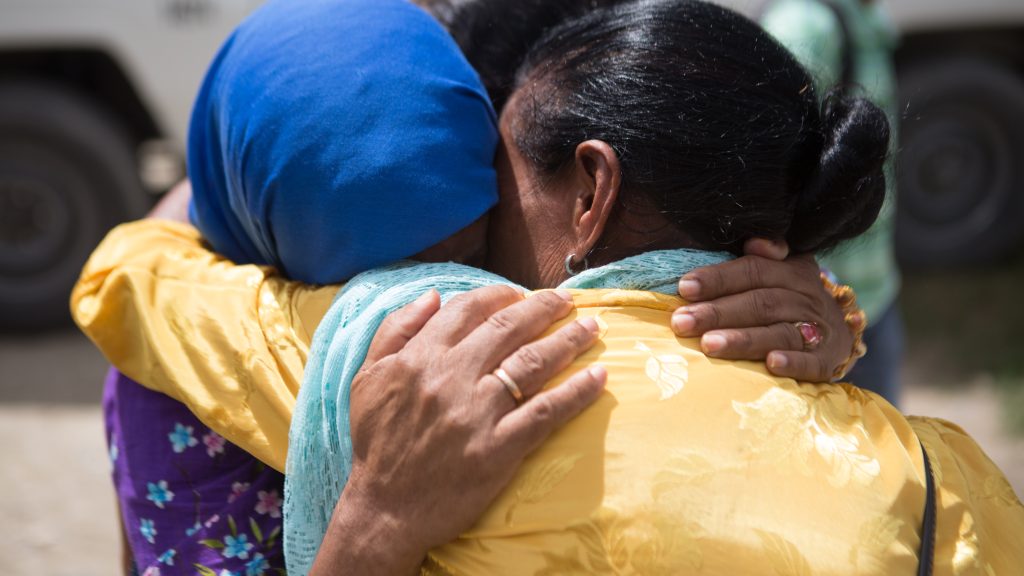
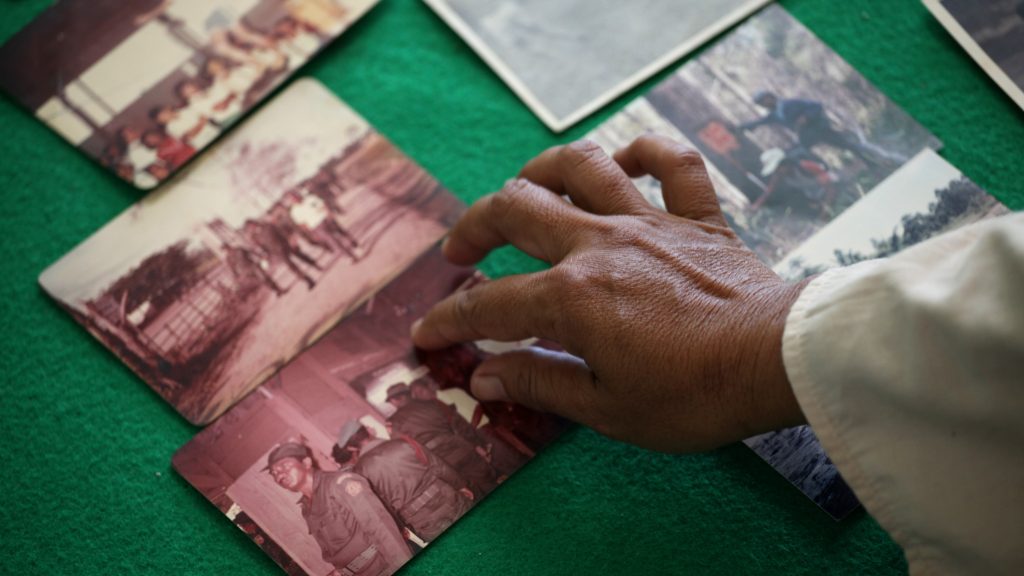
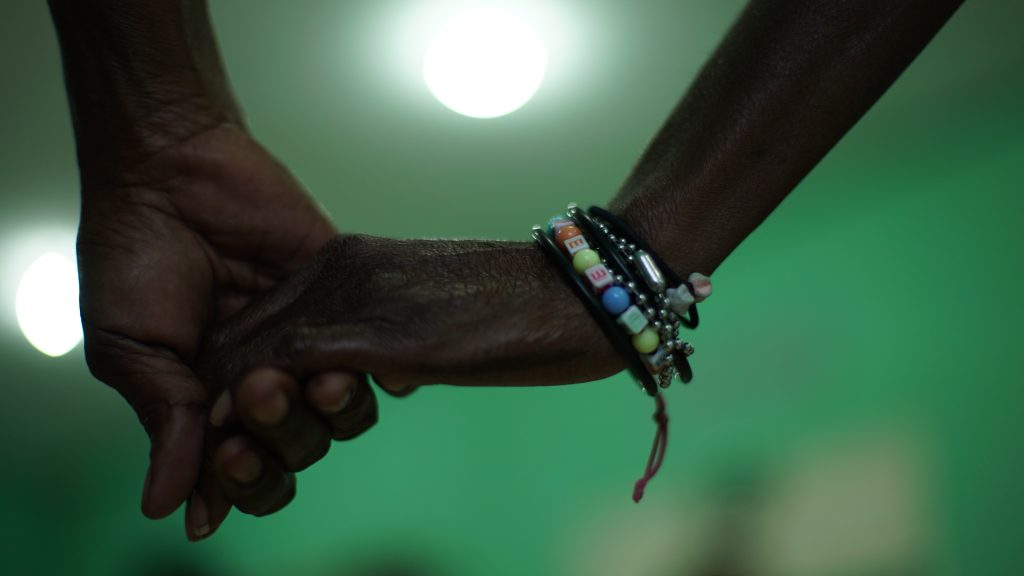
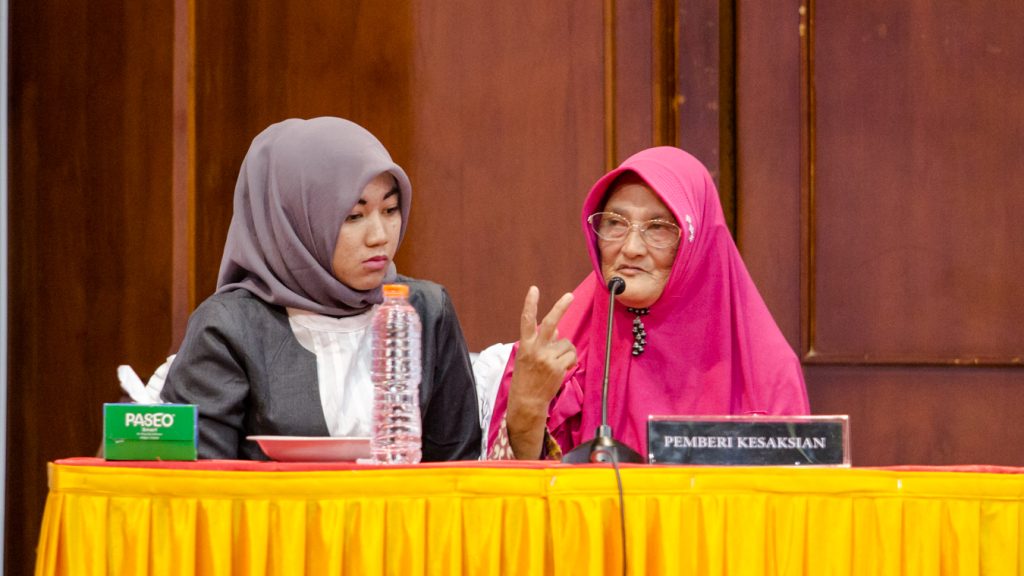

Our Program
Highlights of Programmes in the Past Year
Promoting awareness and understanding
Research, including interviews with hundreds of victims of serious human rights violations, examined the challenges faced by the pandemic in Indonesia and Timor-Leste. The research, combined with practical assistance, helped victims develop coping mechanisms to survive.
The ‘school of human rights and social justice’ for young students in Timor-Leste continued. This year more than 100 university students attended activities, building their commitment to fight against the recurrence of past violations.
Strengthening linkages and increasing social capital of human rights defenders
By linking the Aceh Truth and Reconciliation Commission with Timor-Leste’s Centro Nacional Chega! or CNC, AJAR facilitated exchanges of knowledge and strategies on truth-seeking, reconciliation, and designing urgent reparations programs. Young people from Papua, and other parts of Indonesia and Timor-Leste, visited the Aceh TRC to deepen their understanding of the work of truth commissions.
As a member of the Global Initiative for Truth, Justice, and Reconciliation, AJAR and partners worked to identify best practices for supporting women survivors of sexual violence, and children born of rape, in Timor-Leste, Nepal, Bosnia Herzegovina, and South Africa. Comparative studies on searching mechanisms in Latin America and Timor-Leste, and peace processes in Aceh and El Salvador were developed.
Contributing technical assistance, along with policy and legal inputs
AJAR contributed to regional and national links to UN bodies. Inputs, along with victims’ testimonies, were provided to UN events on reparations, focusing on empowering Timor-Leste’s stolen children.

Regional: Asia-Pacific Communities Showing the Way in Peacebuilding – Building Bridges, Not Just Treaties
Reconciliation agreements and grand ceremonies between warlords have not sealed the peace, as too many have found in post-conflict societies. ...

Indonesia: National Seminar on Collective Initiatives in Building Peace and Accountability
After 26 years of the Reform Era, Indonesia's democracy and culture of accountability have witnessed a troubling decline in civil...

Indonesia/Malaysia/Thailand: New Report from Rohingya Oral Histories Portrayed Urgent Need for Regional Action on Refugee Crisis
“When I looked up, I could only see the sky wherever I looked, and when I looked down, it was...

Indonesia: What We, Community Representatives, Learned through Attending Movies that Matter
This article is written by our friends Yedida Letedara and Crispianus Sebleku of Komunitas Film Kupang. Together, AJAR and the...

Indonesia: AJAR, Komunitas Film Kupang Showcase Documentary of Survivors Stories at Movies that Matter
1 April 2024, The Hague, The Netherlands — A selection of documentary film projects on human rights and social or...

Indonesia: AJAR, Aceh CSOs Launch Digital Map of Human Rights Violations Sites in Aceh
Aceh, Indonesia, 30 October 2023 — Asia Justice and Rights, in collaboration with three Aceh civil society organisations, have unveiled...
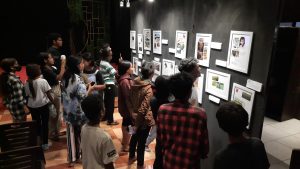
Indonesia: Anak Muda di Kamp Eks Timor Timur, Merajut Nasib pada Negeri yang Dijanjikan
Puluhan anak-anak muda eks Timor Timur di Kupang berkumpul dan dengan bangga menuturkan kisah hidup mereka dalam sebuah pameran karya...
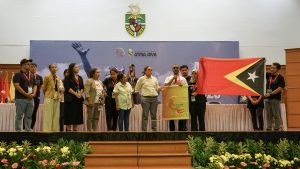
Indonesia: A Joint Call from People’s Forum to Reclaim Safe Space, Restore Democracy and Equity across ASEAN and Beyond
Asia Justice and Rights (AJAR) and civil society organisations of South-East Asia gathered together at Atma Jaya Catholic University, Jakarta,...

Indonesia: In Production, A Documentary of The Enduring Impact of Conflict, Trauma, and Silence across Generations
AJAR, in collaboration with filmmaker Manuel Alberto Maia, is proud to announce the production of a full-length documentary exploring the...
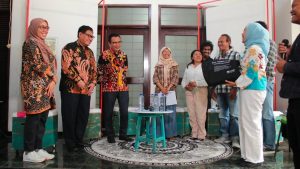
Indonesia: An Intergenerational Learning of Inheriting Memories, Challenging Injustice
AJAR, together with the Community Learning Center (CLC), launched the unveiling of social analysis results and the screening of a...
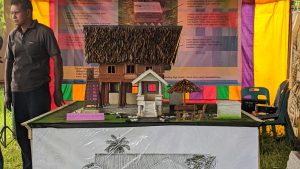
Indonesia: Rushing for a Remedy without Recognition
This article was published in the paper edition of The Jakarta Post with the title ”Rushing for a remedy without recognition”....

Indonesia: New In-depth Report on Human Rights Violations in Aceh, in Collaboration with Project Multatuli and Sinar Pidie
In mid-August 2022, the Washington D.C. District Court publicly released documents containing the testimonies of 11 victims of alleged human...
Resources
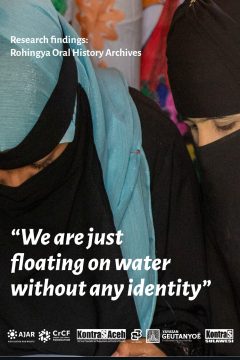
We are just floating on water without an identity: Fulfilling ASEAN’s mandate to protect Rohingya genocide survivors in their quest for rights and accountability
Since April 2023, Asia Justice and Rights (AJAR), in partnership...

Peulara Damèe: A Plain Guide
The full Findings Report of the Aceh Truth and Reconciliation...
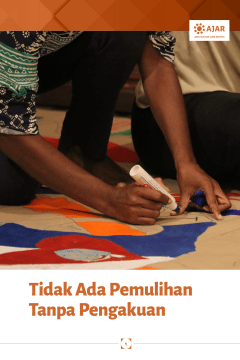
Tidak Ada Pemulihan tanpa Pengakuan
AJAR wrote this paper based on reflections from 18 survivors...
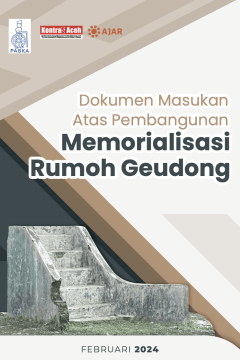
Dokumen Masukan atas Pembangunan Memorialisasi Rumoh Geudong
This document, authored by KontraS Aceh, PASKA Aceh, and AJAR,...

Mapping Commemorative Cultural Events, Best Practices, and Lessons Learned
PEMETAAN-BUDAYA-ACARA-PERINGATAN-...-ACEH-INDONESIADownload

Learning from the Past for the Future Without Impunity
Asia Justice and Rights, KontraS Sulawesi, SKPHAM Sulteng, JPIT, CIS...
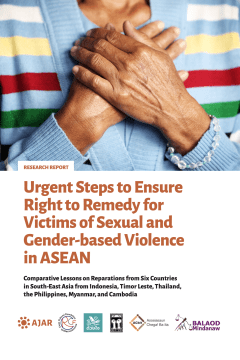
Urgent Steps to Ensure Right to Remedy for Victims of Sexual and Gender-based Violence in ASEAN
For over a year, the Transitional Justice Asia Network collected...
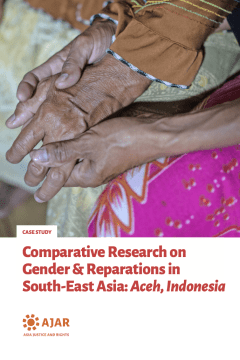
Comparative Research on Gender & Reparations in South-East Asia: Aceh, Indonesia
Aceh has maintained its formal peace after turbulent civil conflicts,...
